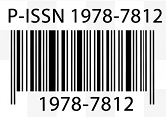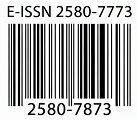REKONSILIASI ILMU DAN AGAMA PERSPEKTIF NURCHOLISH MADJID DALAM EPISTEMOLOGI ISLAM
Abstract
This research discusses Nurcholish Madjid's thoughts on science and religion from the perspective of Islamic epistemology. It is a relatively difficult endeavor because one's thoughts often reflect multiple prototypes. The type of research used is a philosophical-historical hermeneutic analysis approach. In this context, the three methods are used to explore concepts related to the reconciliation of science and religion in Islamic epistemology. The data in this research were obtained through a literature study, which involved collecting books, papers, articles, and journals relevant to the research topic that reflect the understanding of the polarization of science and religion, thereby enriching research perspectives. This research is a qualitative literature review with a philosophical approach using critical analysis and historical hermeneutic methods. The research findings obtained are that Nurcholish Madjid has an ontological basis in the form of belief in the oneness of God as a basis for the development of science and religion in the Islamic world. Regarding the field of epistemology, Nurcholish Madjid has thoughts mainly related to the issue of the function of reason in science. The solution offered to the crisis in the relationship between science and religion for Nurcholish Madjid is simply to include ethical-aesthetic elements in it. Finally, for Nurcholish Madjid, science and religion are about high reality. In scientific studies, religion is a system of symbols. So there is a universal idea of science and religion, which is then translated through concrete events so that it enters the human mind. That's why the word of God is called a verse. In the language of the Quran, it is called a religion of justice and prosperity, even though humans generally do not know it.
References
Abidin, M. Zainal. “Islam Dan Tradisi Lokal Dalam Perspektif Multikulturalisme.” Millah: Journal of Religious Studies 8, no. 2 (2009): 297–309. https://doi.org/10.20885/millah.vol8.iss2.art6.
Adam, Hasyim, and Munasir. “MODERNISASI PENDIDIKAN ISLAM PERSPEKTIF NURCHOLISH MADJID.” Kamaliyah: Jurnal Pendidikan Agama Islam 1, no. 2 (2023): 76–86. https://doi.org/10.69698/jpai.v1i2.431.
Ahmad Syauqi Fuady, and Samsudin. “Pemikiran Pendidikan Mohammad Hatta Dalam Perspektif Pendidikan Islam.” AL-MURABBI: Jurnal Studi Kependidikan Dan Keislaman 9, no. 2 (2023): 32–46. https://doi.org/10.53627/jam.v9i2.5109.
Ahmadi, Ahmadi, Afroh Nailil Hikmah, and Agus Yudiawan. “Ilmu Dan Agama Dalam Perspektif Filsafat Ilmu.” Al-Fikr: Jurnal Pendidikan Islam 7, no. 1 (2021): 12–25. https://doi.org/10.32489/alfikr.v7i1.108.
Akmalia, Kasyiful, Nurkhalis Nurkhalis, and Raina Wildan. “Islam Dan Tantangan Modernitas Perspektif Nurcholish Madjid.” Jurnal Pemikiran Islam 7, no. 1 (2021): 135–48. https://doi.org/10.52266/tadjid.v7i1.1851.
Amin Abdullah, M. “Religion, Science and Culture: An Integrated, Interconnected Paradigm of Science.” Al-Jami’ah 52, no. 1 (2014): 175–203. https://doi.org/10.14421/ajis.2014.521.175-203.
Acep Aripudin, and Jujun Junaedi. “Actualization of Islam: Conceptual Analysis and Operationalization of Intellectual Substantive Da’wah by Nurcholish Madjid In Indonesia.” International Journal of Multidisciplinary Research and Analysis 07, no. 05 (2024): 1880–94. https://doi.org/10.47191/ijmra/v7-i05-08.
Muhammad Patri Arifin, “Rekonsiliasi dalam Al-Quran”, Rausyan Fikr: Jurnal Studi Ilmu Ushuluddin dan Filsafat, Vol. 11 No. 1, 2015, 115 – 138. https://jurnal.uindatokarama.ac.id/index.php/rsy/article/view/72
Aulia, Hilyati. “HERMENEUTIKA SEBAGAI TEORI INTERPRETASI DALAM TRADISI BARAT.” Al Burhan: Jurnal Kajian Ilmu Dan Pengembangan Budaya Al-Qur’an 22, no. 01 (2022): 129–44. https://doi.org/10.53828/alburhan.v23i01.1273.
Darda, Abu. “Integrasi Ilmu Dan Agama: Perkembangan Konseptual Di Indonesia.” At-Ta’dib 10, no. 1 (2015): 40. https://doi.org/10.21111/at-tadib.v10i1.323.
Dian, Dian, Imas Masripah, Dela Purwandani, Deagi Nur Mohamad Maliki, and Fadhilah Anggraini Pane. “Nurcholish Madjid’s Perspective About Thought of Religious Pluralism.” Munaddhomah: Jurnal Manajemen Pendidikan Islam 3, no. 2 (2022): 139–48. https://doi.org/10.31538/munaddhomah.v3i2.242.
Haitomi, Faisal. “Menimbang Hermeneutika Sebagai Mitra Tafsir.” Nun: Jurnal Studi Alquran Dan Tafsir Di Nusantara 5, no. 2 (2020): 45–69. https://doi.org/10.32495/nun.v5i2.90.
Ismunadi, Ali, and Moh. Faishol Khusni. “Rekonstruksi Pendidikan Islam Multikultural Indonesia Perspektif Filsafat Pendidikan Islam.” Tribakti: Jurnal Pemikiran Keislaman 32, no. 2 (2021): 353–66. https://doi.org/10.33367/tribakti.v32i2.1742.
Iswanto, Amin Rais, and Kholid Mawardi. “Relevansi Pemikiran Nurcholish Madjid Tentang Integrasi Islam Dan Sains Dalam Era Modern.” Jurnal Kependidikan 12, no. 1 (2024): 69–84. https://doi.org/10.24090/jk.v12i1.9802.
Jalmagambetova, Samal, Yessim Garifolla, and Gulzhykhan Nurysheva. “Philosophy of Mind as a Problem of Philosophy and Science: Representatives of the West and East.” Trans/Form/Ação: Unesp Journal of Philosophy 47, no. 2 (2023). https://doi.org/10.1590/0101-3173.2024.v47.n2.e0240025.
Junaidi, Junaidi, Mulyadi Erman, and Syafwan Rozi. “PEMIKIRAN OPOSISI NURCHOLISH MADJID DALAM BINGKAI POLITIK ISLAM.” Jurnal Yaqzhan: Analisis Filsafat, Agama Dan Kemanusiaan 10, no. 2 (2024): 318–33. https://doi.org/10.24235/jy.v10i2.18735.
Karim, Hafis Abdillah. “PRINCIPLES OF JUSTICE IN ETHICS FROM NURCHOLISH MADJID ’ S PERSPECTIVE.” AL-IMTAZ: JURNAL KEILMUAN USHULUDDIN 1, no. 1 (2024): 51–65.
Nafis, Andi Ahmad Zahri, Barsihannor Barsihannor, and Indo Santalia. “Pluralism Theology of Nurcholis Madjid.” Al-Mutsla 5, no. 1 (2023): 54–71. https://doi.org/10.46870/jstain.v5i1.451.
Nulhakim, Lukman. “Konsep Pemikiran Sekularisasi Nurcholish Madjid Sebuah Fenomenologi Agama.” Risâlah, Jurnal Pendidikan Dan Studi Islam 6, no. 2 (2020): 257–72. https://doi.org/10.31943/jurnal_risalah.v6i2.135.
Safrudin, Moh., Nasaruddin Nasaruddin, and Ihwan Ihwan. “”Tafsir Ayat-Ayat Kemasyarakatan” Implementasi Nilai-Nilai Kemanusiaan Dalam Kehidupan Modern.” TAJDID: Jurnal Pemikiran Keislaman Dan Kemanusiaan 7, no. 1 (2023): 135–48. https://doi.org/10.52266/tadjid.v7i1.1851.
Sopandi, Dede Ari, and Mohamad Taofan. “Konsep Teologi Inklusif Nurcholish Madjid.” Jaqfi: Jurnal Aqidah Dan Filsafat Islam 4, no. 2 (2019): 58–92. https://doi.org/10.15575/jaqfi.v4i2.9399.
Staiti, Andrea. “Philosophy: Wissenschaft or Weltanschauung? Towards a Prehistory of the Analytic/Continental Rift.” Philosophy & Social Criticism 39, no. 8 (July 18, 2013): 793–807. https://doi.org/10.1177/0191453713494972.
Supriatna, Eman. “Islam Dan Ilmu Pengetahuan.” Jurnal Soshum Insentif 2, no. 1 (2019): 128–35. https://doi.org/10.36787/jsi.v2i1.106.
Zaenuddin. “Analisis Hermeneutika Dan Tekstualisme Al-Qur’an (Dari Klasik Hingga Kontemporer).” Al-Afkar Journal for Islamic Studies 3, no. 1 (2020): 137–63. https://doi.org/10.31943/afkar_journal.v3i1,%20January.91.


_(1)1.png)















